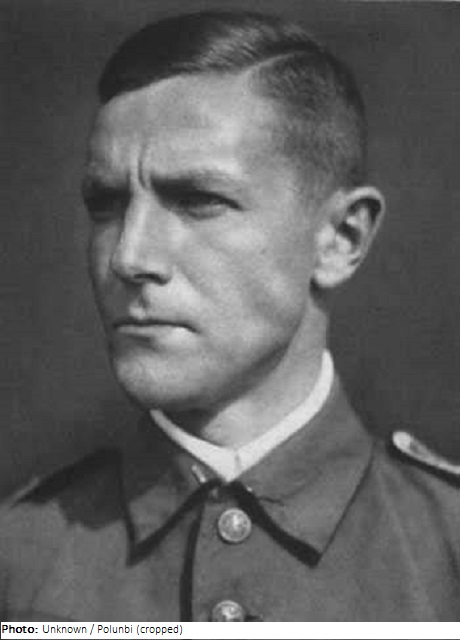Richard Euringer

Biographical information
| Roles | Referee |
|---|---|
| Sex | Male |
| Full name | Richard•Euringer |
| Used name | Richard•Euringer |
| Other names | Florian Ammer |
| Born | 4 April 1891 in Augsburg, Bayern (GER) |
| Died | 29 August 1953 in Essen, Nordrhein-Westfalen (GER) |
| NOC |  Germany Germany |
Biography
After attending high school, Richard Euringer became an officer candidate in the Bavarian Army. During World War I, he joined the air force as a pilot and was deployed on the Western Front and in the Near East. In 1917, he was appointed head of a flying school. Later, he denied military defeat and advocated the stab in the back legend.
After the war, Euringer began studying art history and economics in München but had to abandon his studies due to inflation. He then tried his luck, for instance, as a worker in a sawmill and as a bank apprentice. He joined the Nazi movement already in the 1920s and was a co-founder of the right-wing “Nationalverband deutscher Schriftsteller” (National Association of German Writers). From 1931, he wrote for the Völkischer Beobachter and numerous other Nazi papers. He supported the NSDAP in election campaigns towards the end of the Weimar Republic and, officially, joined the party in 1933.
Euringer’s first steps as a writer failed. His play Der neue Midas (The new Midas,1920) was considered a parody. It was not until 1929, that he achieved a “respectable success” in national circles. In 1930, he published his strongly anti-democratic novel Die Arbeitslosen (The Unemployed). The writing was praised by National Socialists as well as conservative Catholic publicists.
In 1933, Euringer’s audio drama Deutsche Passion (German Passion) appeared and was awarded the first National Prize by Propaganda minister Goebbels. In the same year, without a respective professional qualification, he was appointed director of the municipal libraries in Essen. Here, in the frame of ideological cleansing, he segregated 11,000 volumes, of which a part was publicly burned. Later that year, he was among 88 German writers who signed the pledge of loyal allegiance to Adolf Hitler.
In 1934, Euringer became a member of the administrative advisory board of the “Reichsschrifttumskammer” (Reich Literature Chamber) and the Reichsrundfunkkammer (Reich Broadcasting Chamber), and one year later he was appointed Reich Culture Senator. From 1936, he worked as a freelance writer. During World War II, he was a major in the Richthofen fighter squadron and a general staff officer in the war history department.
After the liberation, Euringer was arrested and interned by the U.S. military government as Nazi-incriminated. In the denazification proceedings, however, he was benevolently classified as a “Mitläufer” (engl.: fellow traveler). Subsequently, he wrote the justification pamphlet Die Sargbreite Leben (A Coffin-Width of Life_, 1952. By his biographer, it was described as “an unspeakable book full of self-pity”. A Catholic-oriented publishing house enabled him to publish new books, however only under the pseudonym Florian Ammer. In East Germany, later GDR, his works were banned.
Referee
| Games | Sport (Discipline) / Event | NOC / Team | Phase | Unit | Role | As | |
|---|---|---|---|---|---|---|---|
| 1936 Summer Olympics | Art Competitions |  GER GER |
Richard Euringer | ||||
| Literature, Dramatic Works, Open (Olympic) | Final Standings | Judge | |||||
| Literature, Epic Works, Open (Olympic) | Final Standings | Judge | |||||
| Literature, Lyric Works, Open (Olympic) | Final Standings | Judge |